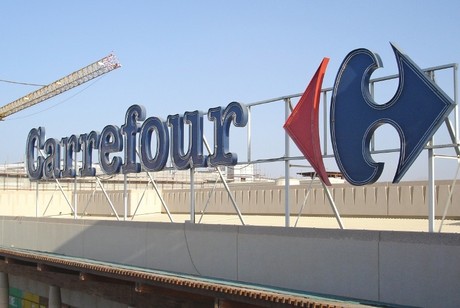
The United Nations is under intense pressure to explain why thousands of well-armed peacekeeping troops failed to respond to urgent calls for help from international humanitarian workers under attack only minutes away from its bases during fighting in South Sudan last month.
Several of the aid workers were raped, most robbed or beaten, and some terrorised with mock executions by scores of South Sudanese government troops in Juba, the capital, on 11 July. A local journalist was executed by the troops during the attack, which lasted almost four hours.
According to an investigation by the Associated Press, senior officials with the UN mission in South Sudan (Unmiss) were alerted by calls and text messages from within the complex of accommodation, dining and sports facilities, known as the Terrain compound, within minutes of the attack beginning at about 3pm.
Unmiss has more than 12,500 troops from 61 countries deployed in South Sudan, which gained independence from Sudan in 2011 after decades of bitter civil war. Under the UN’s terms of engagement, the force, which is equipped with armoured vehicles and heavy weapons, has the authority to take action to protect civilians and staff from imminent violence.
About 2,500 troops are stationed in two bases in Juba, backed by about 930 support staff and 350 police officers.
One base was only several hundred metres from the Terrain hotel compound, but despite dozens of appeals for help from the besieged aid workers and personal visits from at least one who escaped from the compound, internal UN documents show no help was sent, the AP reported.
Bullet holes in a metal door that was shot open at the Terrain compound in the 11 July attack. Photograph: Adriane Ohanesian/AP
Aid agencies and international powers have criticised the UN failure.
“We are deeply concerned that United Nations peacekeepers were apparently either incapable of or unwilling to respond to calls for help,” Samantha Power, the US ambassador to the UN,said on Monday.
The attack came at the end of three days of fighting in Juba between government forces loyal to Salva Kiir, the president, and supporters of Riek Machar, a former rebel leader and the then vice-president. The two men and their factions have contested power in South Sudan since independence. Kiir is an ethnic Dinka, Machar an ethnic Nuer.
A peace deal concluded in August last year now appears on the point of breakdown, raising the threat of renewed civil war and an acute humanitarian crisis in the poverty-stricken country.
More than 300 people died in the fighting last month, with the majority of the military casualties sustained by the rebels. A number of government soldiers from the Sudanese People’s Liberation army (SPLA) were also killed.
However, civilians suffered worst, with tens of thousands displaced by the violence and widespread human rights abuses by both sides.
Displa ced people walk next to a fence at the UN base in Juba. Photograph: Jason Patinkin/AP
ced people walk next to a fence at the UN base in Juba. Photograph: Jason Patinkin/AP
Human Rights Watch (HRW), the international campaign group, found evidence that government soldiers raped dozens of women sheltering at a protection of civilians camp at a UN base in Juba who had ventured out in search of food.
The UN commissioner on human rights also raised concerns about the peacekeepers’ actions during the fighting in a report this month. However, the details emerging of the attack on the Terrain hotel have put the UN under new pressure.
According to the AP and HRW, at least five women at the compound were raped, some by several men.
“He told me I had to have sex with him or else I would have to have sex with all the other soldiers – so I didn’t have a choice,” one survivor of multiple rapes said.
Soldiers cheered as they took turns raping a woman or two women in a room, witnesses told the group. In one case of attempted rape, a soldier beat the woman with his gun, then another fired a bullet next to her head.
Soldiers also beat many of the compound residents, sometimes demanding to know their nationalities or affiliations. Satellite dishes, televisions, money, clothes, food, computers and bottles of alcohol were looted.
Debris lies in the Terrain compound after it was looted in the attack. Photograph: Adriane Ohanesian/AP
John Gatluak, a journalist, was killed because his traditional tribal markings revealed that he was Nuer, the group said.
The troops specifically targeted US citizens, according to the AP. Soldiers beat one American and fired bullets at his feet and close to his head. When he was told to leave, he made his way to the nearby UN compound and appealed for help, the agency reported.
A member of the UN’s joint operations centre in Juba first received notice of the attack at 3.37pm, minutes after troops entered the compound and some time before they reached apartments protected by bars and metal doors, according to an internal timeline seen by AP. The timeline shows other appeals for help.
The American who was released requested help from three UN battalions. “Everyone refused to go. Ethiopia, China and Nepal. All refused to go,” he said.
Eventually, South Sudanese security forces entered the Terrain and rescued all but three western women and about 16 Terrain staff. A private security firm rescued the rest the next morning.
A spokesman for Ban Ki-moon, the UN secretary general, said he was “concerned about allegations that Unmiss did not respond appropriately to prevent this and other grave cases of sexual violence committed in Juba” and had ordered an independent special investigation. No further details were available.
The UN has tried to justify its reported inactivity by pointing to the restrictions placed on its peacekeepers by both authorities and opposition groups in South Sudan. The mission’s main base in Juba – the UN House compound – came under fire during the July fighting and three UN personnel have been killed.
The government has also put up roadblocks and other obstacles to impede UN patrols, while civilians working for the organisation have faced harassment, intimidation and detention.
“These restrictions on Unmiss are a clear violation of the status of forces agreement between the government and the mission,” an official for the UN’s Department of Peacekeeping Operations said.

An office at the Terrain compound that was looted in the attack. Photograph: Adriane Ohanesian/AP
The US embassy in Juba has also been pressed over its failure to help Americans under attack at the Terrain despite desperate calls for help.
Advertisement
Elizabeth Trudeau, a state department spokesperson, said Mary Phee, the US ambassador, made immediate calls to the host government as soon as she learned of the attack.
On the back of those communications, Trudeau said, the South Sudan government dispatched a response force from its National Security Service followed up by a unit of presidential guards, and as a result the rampage was stopped.
After the violence had ended, the US embassy helped move American and other foreign nationals to safety and evacuate people by air ambulance.
At a press briefing on Monday, Trudeau said the embassy was “not in a position” to intervene directly to protect American nationals.
At the time of the attack it is understood there were 12 US Marines posted at the Juba embassy. After violence erupted in the capital between 8 and 11 July, a further 40 Marines were sent to reinforce the embassy.
Military personnel are typically deployed to protect the embassies and diplomatic staff within them, and are rarely mobilised to intervene in events that fall outside US territory and thus within the control of the host government.
The UN peacekeeping mission in South Sudan has an annual budget of more than $1bn (£770m). It has repeatedly been accused of failing to protect civilians, most notably during a February attack on a base in the northern city of Malakal, where at least 30 people were killed.
About half of South Sudan’s population of 11 million people are threatened with famine; inflation is at 300% and the country is in effect bankrupt.













